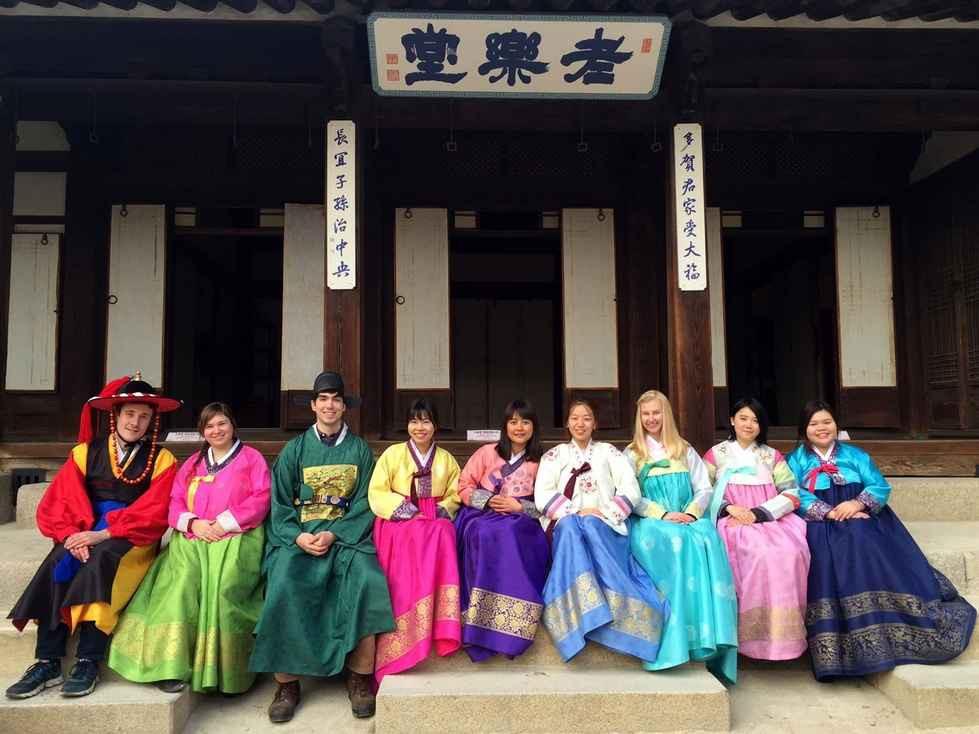Learning how to navigate gender roles abroad

courtesy – gvsu.edu
Mar 19, 2018
As Grand Valley State University continues to encourage students to study abroad, students have the opportunity to learn about how to address issues of identity in new surroundings.
“Navigating Roles Abroad” is a discussion that will be led by a panel of returned Peace Corps volunteers and study-abroad alumni and faculty. The discussion will take place Wednesday, March 21, from 4 p.m. to 5 p.m. at the Mary Idema Pew Library Multipurpose Room.
The event will discuss different ways to approach gender roles when traveling abroad, whether the purpose of the travel is tourism, for studies or service.
“This event will be in honor of women’s month,” said Carissa Patrone, Peace Corps campus recruiter at GVSU. “We’ll be focusing on navigating gender roles because when you are going to a different community to your own, it’s important to be who you are but also be culturally sensitive and integrate yourself into the community as well.
“Gender roles are different when it’s a smaller community versus a larger community, and there are differences from country to country as well.”
The Peace Corps is an opportunity for individuals to discover the community abroad by working alongside local leaders to address pressing concerns in the world. More than 220,000 volunteers in this U.S. program have been working since 1961 in 140 different countries.
As the organization’s website explains, volunteers can choose to work in different sectors, such as agriculture, environment, community economic development, health, education and youth in development. In order to be eligible for the program, candidates need to be U.S. citizens and need to be at least 18 years old.
“I think it’s important for anyone who is going abroad to be culturally sensitive and adapt to the community that you are going to be a part of, building a relationship with the community members, whenever and wherever you are,” Patrone said. “I want students to understand that differences aren’t always a negative thing.
“I want them to learn about customs and realize that even though people are different, we are all people in the end.”
Every year, the Peace Corps sends about 4,000 volunteers to 60 different developing countries all over the world. The applicants can choose the best program to sign up for, adapting it to their interests.
“Each community has local leaders who also apply to have volunteers, whether that’s teaching English to public high schools, partnering with farmers or local businesses, building relationships and exchanging ideas so that Peace Corps volunteers grow in the process but also provide support to the people in the countries as well,” Patrone said.
Kyle Johnson, a GVSU alumnus, served in the Republic of Georgia as an NGO adviser in a non-profit with the Peace Corps. During his time there, he said, he worked with vulnerable populations, ethnic minorities, women and youth in order to build a more vibrant, civic society.
“Each volunteer has their own individual experience,” he said. “It varies a lot because they work in a variety of countries with their own specific needs. My experience was extremely rewarding. Being able to share in such a unique culture for over two years was an invaluable experience that was quite transformative for me and my perspective.
“I recommend it to anyone who has an interest in expanding their global perspective. Peace Corps is a great way to explore the world, and I now see my life as pre-Peace Corps and post-Peace Corps. For me, it is a very apparent divide.”
This lecture will be LIB 100- and 201-approved, and it is open to all GVSU students, faculty and staff.





















